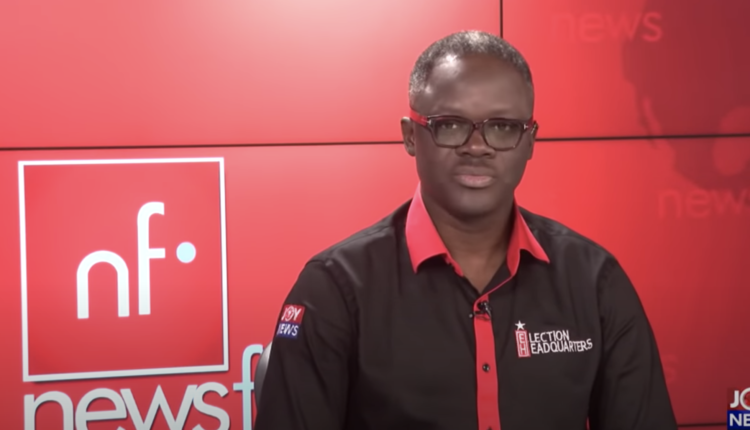In 2018, I wrote a 10-page article to educate on the now famous Article 146 impeachment law and process. This was when then EC Boss Charlotte Osei and her deputies were undergoing that sham of a probe engineered by the ugly partisan politics, which if not checked, will divide this country even more to destroy it. A mere procurement rule breach without evidence of loss or corruption ought to receive ratification by the PPA authority as permitted by the law, and never to warrant removal from office of a holder of the independent constitutional office.
But for political convenience, why will the manifestly unconstitutional and unlawful Sputnik V contract and even matters of audit report be allowed to go for PPA ratification under a regime that sprint-run the originally nameless EC impeachment petition?
I am even baffled that a most incompetent petition was entertained and later dismissed by wasting ink and good legal research on 11 and 1 long pages of paper. ASEPA’s joke of a petition for the removal of the Chief Justice should be the last of such frivolous article 146 petitions to survive 24 hours in the office of the President, CJ or Council of State. This will be avoided if the Supreme Court’s advice in 2005 for passage of rules and regulations to govern the article 146 process is heeded.
I invite you to read my piece ‘All about Article 146’ to appreciate that the provision is not only the constitutional means to remove a judge of the superior courts or commissioners of independent constitutional bodies such as CHRAJ, NCCE and EC, but also a key safeguard of the independence required to secure their jobs.
It is obvious from article 146(1) that it is intended to avoid a situation where holders of offices of these sensitive democracy-protecting institutions are insulated from being unnecessarily and mischievously disturbed with petitions that are frivolous and intended to abuse the process. It is easy to contemplate how a jilted lover or bitter spouse or a political adversary would have used article 146 or be sponsored to activate it if they didn’t need hardcore evidence but could rely on mere gossip to trigger impeachment.
It is equally not difficult to imagine what the attrition rate would have been for such officeholders or the disinterest for these jobs if mere shouts of misconduct without evidence would get a trial. So, the prima facie stage requires evidence of the facts alleged to be of sufficient weight to justify the need to investigate the matter. In this case, not a single piece of evidence was offered. It ought to have been trashed the moment it hit the desk of the President because it was dead at birth.
How do you put a person on trial simply because someone has thrown words on papers accusing another person of a crime without any evidence at all? You have heard a lawyer allege, without any proof, that his former client told him that the CJ demanded ¢5m bribe in a case the CJ ruled against him, that’s all. Probe him – what a joke?!
I have described the president as a mere postmaster/conveyor belt when the petition is not against the CJ, in which case his job is simply to transmit it to the CJ to determine if it has merits before a committee will investigate the issues raised. But where it is for the removal of the CJ, he is to consult with the Council of State and may hire an experienced independent lawyer to make the prima facie determination before consulting the Council to set up the committee to investigate the case. Anyone who suggests even remotely that President Akufo Addo did anything wrong in this case is terribly ill-advised or ignorant or engaged in self-embarrassing political propaganda.
CHRAJ could also not entertain it because the principle of law is that if the law provides a specific forum or remedy for a situation, that is what ought to be resorted to. By article 146, such a probe is not conducted at CHRAJ. Section 13 of the CHRAJ Act also empowers it to reject such misdirected cases. But even if it were a matter it could investigate, it would also have been trashed, at the preliminary stage, for lack of evidence. Hearsay without more can never be the basis of any serious investigation by any serious body because the end of such futile exercise is known at the start.
There is a good reason why the Article 146 probe is conducted in-camera and not open to the public as dictated by the Constitution. If you wish to invoke it, respect it fully and not in part, knowing also that a breach of this confidential rule exposes you to sanctions including arising possible criminal prosecution, damages for constitutional infraction, damages from defamation suit or breach of injunction or committal for contempt.
I hope such frivolous petitions are not the reason presidents have reportedly unconstitutionally refused to act on or transmit reported petitions to the CJ.
That’s my take. That’s your legal light.
Source: Samson Lardy Anyenini
Editor’s Note: Samson Lardy ANYENINI is a Ghanaian lawyer and journalist who works for Multimedia Ghana’s Joy Fm. He hosts Joynews and Joy FM’s weekend current affairs news analysis Newsfile programme. He won the category of Best Journalist for 2019 GIJ Annual Awards.


Comments are closed.